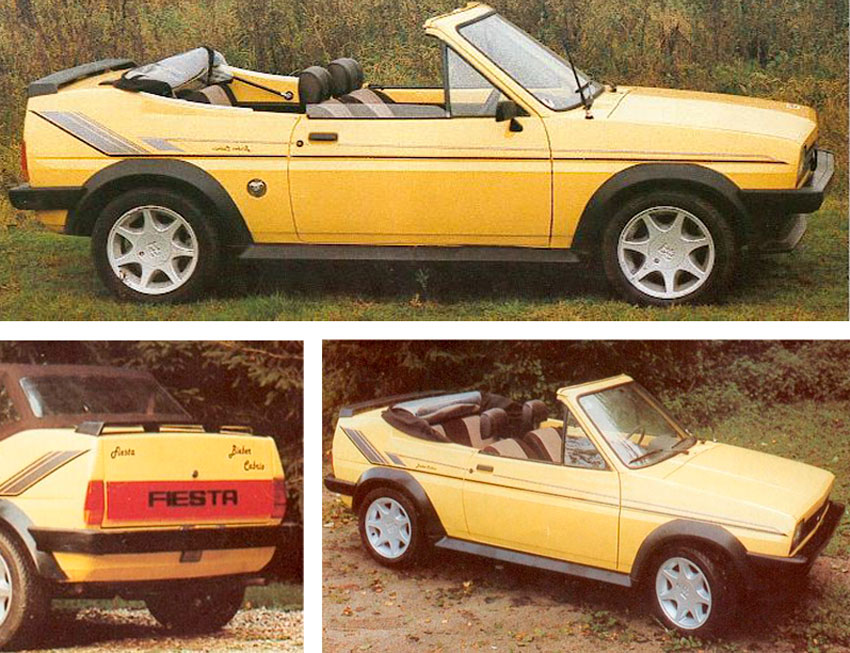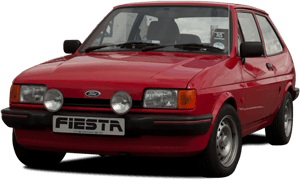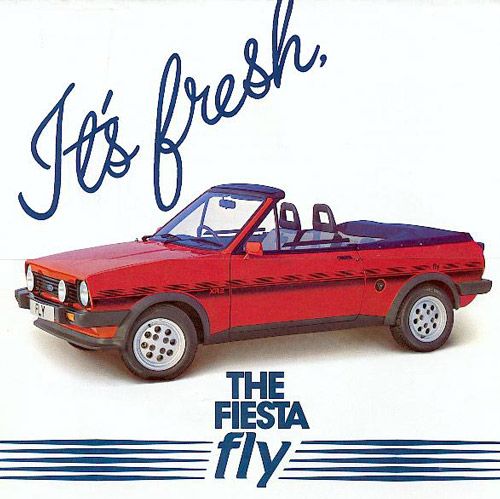Mk1 and Mk2 Ford Fiesta Cabriolet Conversions
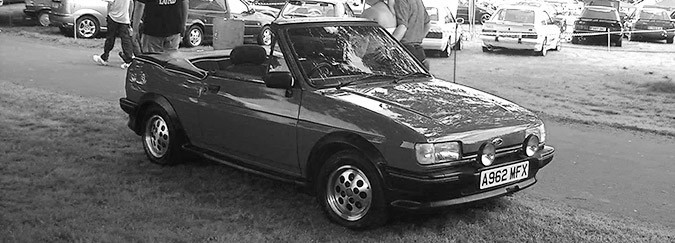
Although too niche a market for Ford to produce themselves, both the Fiesta Mk1 and Mk2's were adapted in small numbers as a convertible model by aftermarket manufacturers. The most well known conversion is the Mk1 Fiesta Fly which was predominantly sold to a UK market.
Crayford Fiesta Fly
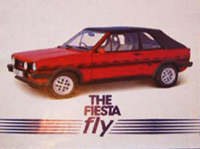
The Fiesta Fly was a convertible version of the Ford Fiesta, originally designed by David McMullan and produced by the Kent based coachbuilders, Crayford. Production began in 1981 and it is believed that a few (approximately 18) Mk1 cars were created by Crayford themselves before selling the license for producing the Mk1 to the coach building division of F.English, a large Ford dealer based in Dorset on the south coast of England. In excess of 200 Fly's are thought to have been built overall. The conversion included reinforcing the inner sill sections and welding the boot lid shut.
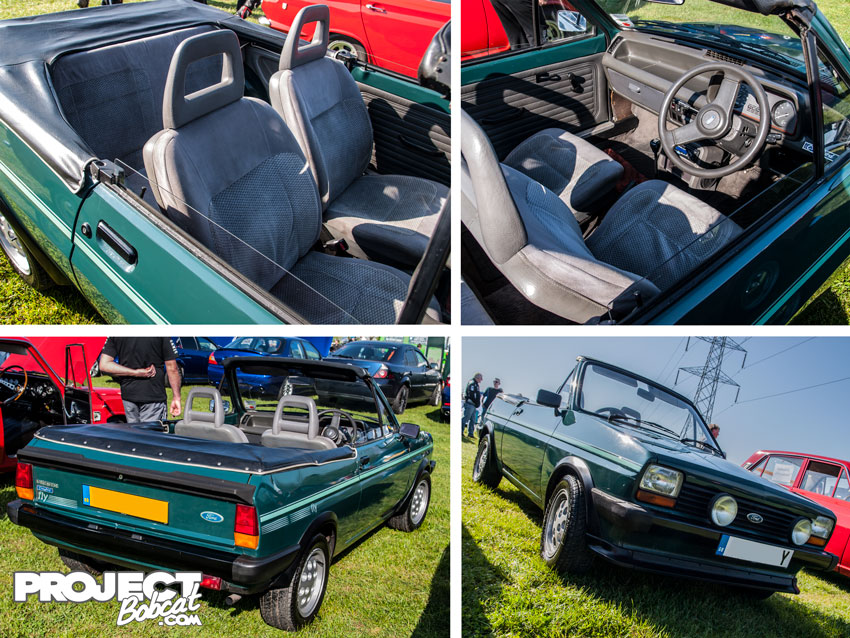
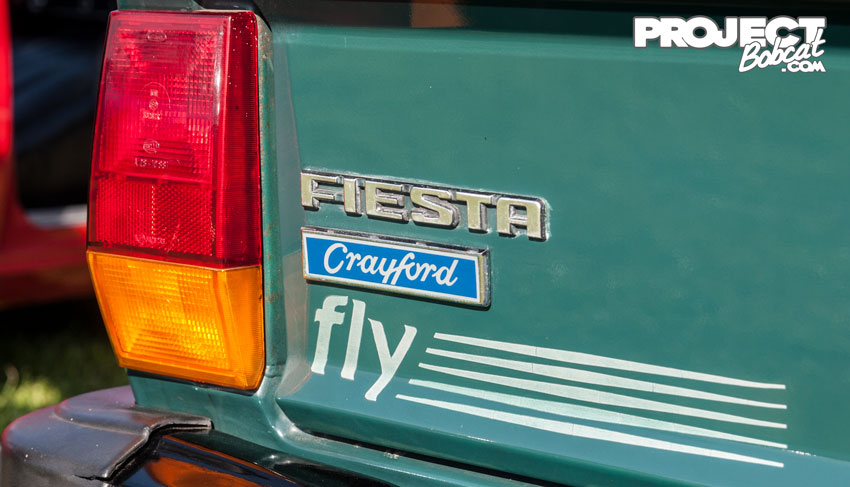
Rugby Autocar
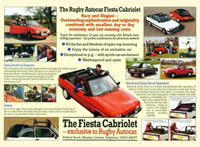
The Rugby Autocar Cabriolet's were, as with the fly, a small scale hand built conversion with reputedly 7 or 8 vehicles produced. Rugby used small engined Mk2 models as the basis, and as part of the conversion, incorporated a roll cage to improve strength and rigidity. Unlike the Fly conversions, the Rugby vehicles retained their entire door and the cage formed a replacement B pillar which supported rear side glass. Many of the cars produced seem to have had the optional low level boot spoiler fitted.
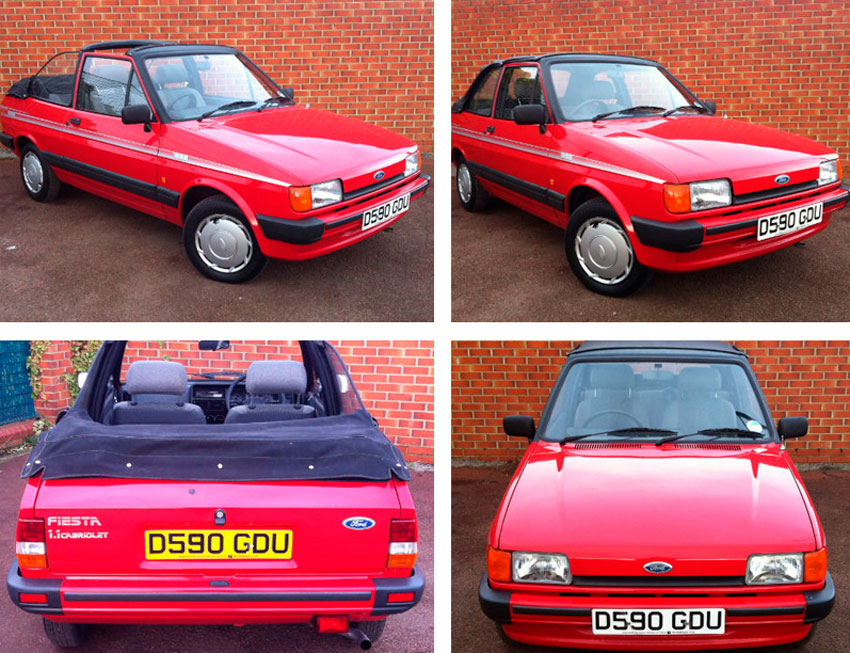
Bieber Cabrio

Bieber are a car specialist based in Borken, Germany. They specialise in cabriolet conversions for a wide range of cars including the Volkswagon Beetle, Porsche 944, Seat Ibiza and Opel Kadett. They produced a series of convertible bodykitted Mk1 and Mk2 Fiestas complete with an opening boot.
Bieber Cabrio offered two options:
Option A: A partial build whereby they did all the conversion work on the bare shell and left the owner to rebuild it including the respray. In 1992 the partial option cost £1430 + VAT (£1155 for the kit plus labour at £275).
Option B: A complete build where the owner provided a standard Fiesta and Bieber returned a fully finished, painted and converted cabriolet. The full build cost was £2194 + VAT.
The Bieber conversion process
Upon arrival Bieber stripped out the interior and marked cutting points onto the A, B and C posts where the roof will be removed. Once the roof had been cut away, strengthening members are welded in.
A crossmember spanning across the car tied into box sections welded to the inside of the sills, the crossmember also reinforced the B pillars. This was then welded to sections that reinforce the rear of the car across the boot area behind the rear seat. Extra steel bracesa cross the rear suspension turrets (similar to the weld in rear strut braces commonly fitted by enthusiasts). There was also additional reinforcement added behind the front bulkhead in the form of a box section between the wheelarches. Additionally 3mm steel plate was welded across the floorpan incorporating the transmission tunnel for stiffening. Lastly, box section steel reinforces the A pillars, and a custom designed strut brace connects the front suspension turrets.
With the roof gone there is a hole left at the rear of the car so Bieber designed a new rear quarter and rear deck from double skinned GRP, which was bonded and riveted to the bodywork and blended in.
An optional four layer hood was available instead of the standard vinyl one at an additional cost of £80.00.
More than one company offered conversions using the Bieber kit, the Cabriolet Workshop near Colchester, Essex offered the conversion in the UK.
